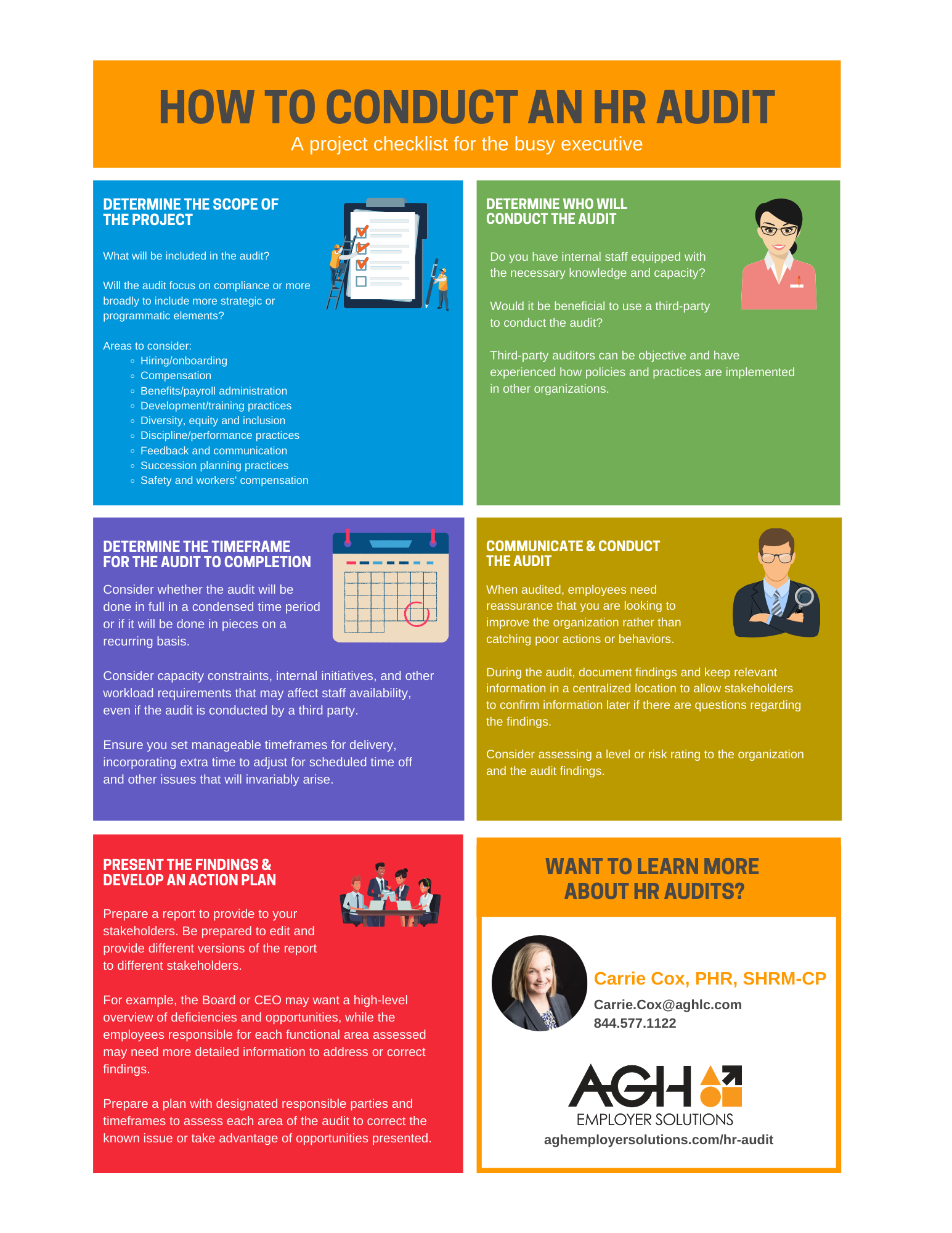An HR audit can help you understand whether your HR practices are benefitting or hampering your organization. It provides feedback about HR initiatives and their effect on business objectives. It can provide a road map for needed changes to HR policies, procedures and metrics to boost performance of human capital in the organization. Typically, HR audits focus on compliance, best practices and strategy, but sometimes they are driven by red flags found in the organization. Audits can be conducted in-house with internal staff or by third-party auditors.
Either way, before you can jump in, you need to develop a detailed plan to accurately assess the resources and time needed to conduct the audit and present the findings.
Here is a checklist to help you get started.
HR audit checklist
 Click here to download and/or
Click here to download and/or
print out this checklist.
Determine the scope of the project
Determine whether the audit will focus on compliance or more broadly to include more strategic or programmatic elements. A few areas to consider include:
- Benefits/payroll administration
- Compensation
- Development/training practices
- Discipline/performance practices
- Diversity, equity and inclusion
- Feedback and communication
- Hiring/onboarding
- Safety and workers’ compensation
- Succession planning practices
Determine who will conduct the audit
Determine if an internal or external party will conduct the audit. Key considerations include:
- Internal staff: Do you have staff equipped with the necessary knowledge and time capacity to conduct the audit?
- Third-party auditors: Would it be beneficial to use a third-party to conduct the audit? Third party auditors can be objective and have insight into how policies and practices are implemented in other organizations. If the organization thinks there may be a risk of legal liability found by the audit, a third-party auditor is recommended.
Determine the timeframe for the audit to completion
Layout a calendar for when certain steps will occur and milestones will be achieved. Decide whether the audit will be done in full in a condensed time period or if it will be done piecemeal on a recurring basis. Consider capacity constraints, internal initiatives and other workload requirements that may affect staff availability, even if the audit is conducted by a third party. Ensure you set manageable timeframes for delivery, incorporating extra time to adjust for scheduled time off and other issues that invariably arise.
Communicate and conduct the audit
Make the organization aware of the audit and what to expect. When audited, employees need reassurance that your intent is to improve the organization rather than looking for poor actions or behaviors. During the audit, document findings and keep relevant information in a centralized location to allow stakeholders to confirm information later if there are questions regarding the findings. Consider assessing a level or risk rating to the organization and the audit findings.
Present the findings and develop an action plan
Inform relevant stakeholders of the findings and develop a plan to shore up deficiencies and take advantage of opportunities. When preparing a report to your stakeholders, be prepared to edit and provide different versions of the report to various stakeholders. For example, the board or CEO may want a high-level overview while the leaders responsible for each functional area assessed may need more detailed information to address or correct findings.
Prepare a plan with designated responsible parties and timeframes to assess each area of the audit to correct the known issue(s) or take advantage of opportunities presented.